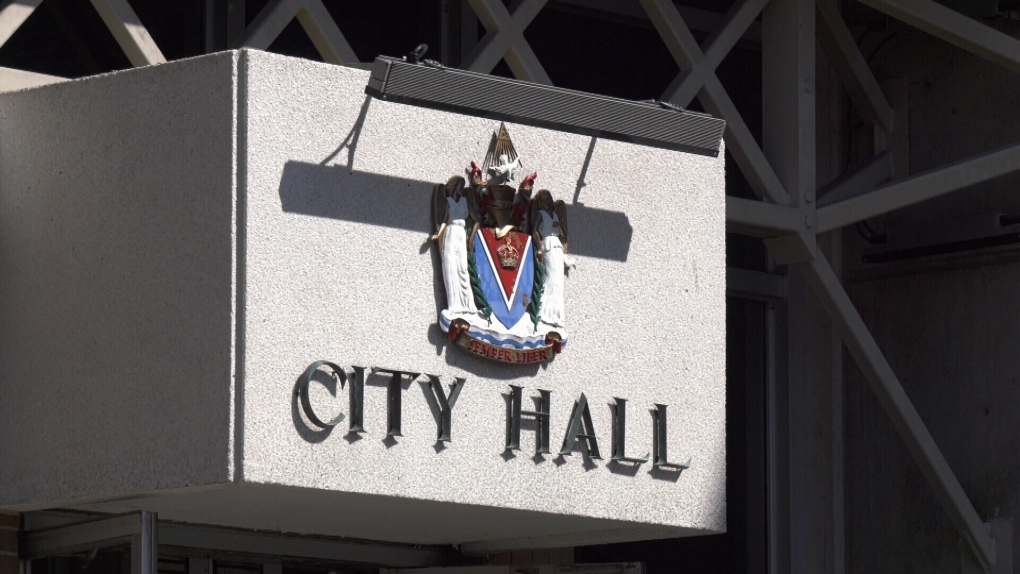Victoria council approves 'missing middle' initiative
Victoria’s newest council has greenlit a contentious housing initiative that makes it easier to densify neighbourhoods, after a tumultuous and lengthy debate that’s gone on for years.
The "missing middle" housing policy has been approved in a 6-3 vote. It allows builders to construct multiplexes – such as townhomes and four-plexes – without having to rezone the lot.
"I think everybody recognizes that we need more density, we need more housing," said Coun. Chris Coleman, despite voting against it.
He’s concerned with the initiative treating all neighbourhoods the same and doesn’t think it does enough to address affordability.
"I’m sure we will construct new housing options, but I don’t think the rents will go down," said Coleman.
Aryze Developments used to work on projects of a similar scale, but says the long rezoning process made it difficult to build a business in Victoria. It’s moved on to higher density projects, but thinks there are others who will be interested – including co-ops and non-profits.
"Because the rezoning process is a huge barrier to people, to coming together, to want to do a co-op together," said owner Luke Mari.
"So with that out of the way, it’s much easier to secure funding for these smaller projects," he said.
 The entrance to city hall in Victoria, B.C. (CTV News)The rental advocate Together Against Poverty Society is hopeful the plan could lead to smaller scale, supportive and subsidized housing sites – and is encouraged about the diversity it should bring.
The entrance to city hall in Victoria, B.C. (CTV News)The rental advocate Together Against Poverty Society is hopeful the plan could lead to smaller scale, supportive and subsidized housing sites – and is encouraged about the diversity it should bring.
But, it’s also concerned about affordability in the region as prices increase.
"We would encourage municipal bylaws to work with provincial legislation to focus on vacancy control as a priority," said Antonia Mah.
The introduction of such a control would prevent landlords from hiking the rent for new tenants when another moves out.
The South Island Prosperity Partnership watches the regional economy, connecting with local businesses regularly. It says, amid the labour shortage, employers across all industries are asking for more housing to help recruit and retain staff.
"The ultimate goal from our perspective is to have a sustainable economy," said Dallas Gislason with SIPP.
"We need to be able to attract people to the region – younger people, we need health-care workers, we need doctors. Those people in all cases need somewhere to live and there’s just quite frankly not enough," he said.
CTVNews.ca Top Stories

Joe Biden pardons his son Hunter Biden on gun, tax charges, despite previous promises he wouldn't
U.S. President Joe Biden announced Sunday that he pardoned his son Hunter Biden on gun, tax charges, despite previous promises that he would not do so.
Canada Post presents union with 'framework' to reach deal as strike continues
Canada Post says it has presented the union representing some 55,000 striking postal workers with a framework to reach negotiated agreements.
'Devastating': Missing Surrey, B.C. teen found dead, family says
The family of a missing 18-year-old, who was last seen in Surrey over a month ago, says there has been a tragic end to the search.
The best tips to prepare your car for the winter
Slippery or snow-covered roads, reduced visibility and bitter cold are all conditions that can make driving difficult and even dangerous during cold weather months. CAA spoke with CTV Morning Live this week on some of the best ways you can winterize your car.
PM Trudeau 'surprised' provinces unanimous on accelerated defence spending: Ford
Ontario Premier Doug Ford says his fellow provincial leaders are united in pushing for Canada to meet its NATO defence spending targets ahead of schedule, and that Prime Minister Justin Trudeau was "surprised" to hear it.
Stellantis CEO Carlos Tavares resigns as carmaker continues to struggle with slumping sales
Stellantis CEO Carlos Tavares is stepping down after nearly four years in the top spot of the automaker, which owns car brands like Jeep and Ram, amid an ongoing struggle with slumping sales.
'Wicked' star Marissa Bode speaks out against 'harmful' ableist comments made about her character
'Wicked' actress Marissa Bode posted a video on TikTok asking for kindness after receiving ableist comments on social media.
Poilievre calls for asylum seeker cap, border plan as U.S. tariff threat looms
Conservative Leader Pierre Poilievre has demanded the federal government present a plan before Parliament to beef up border security as U.S. president-elect Donald Trump threatens to impose stiff tariffs on Canada.
Emergency crews battle large fire at Kitchener, Ont. townhouse complex
Waterloo Regional Police say Kingsway Drive will remain closed as emergency crews continue to battle a large blaze at a townhouse complex.


































